Cult Shop: the Parisian cornucopia of kitsch
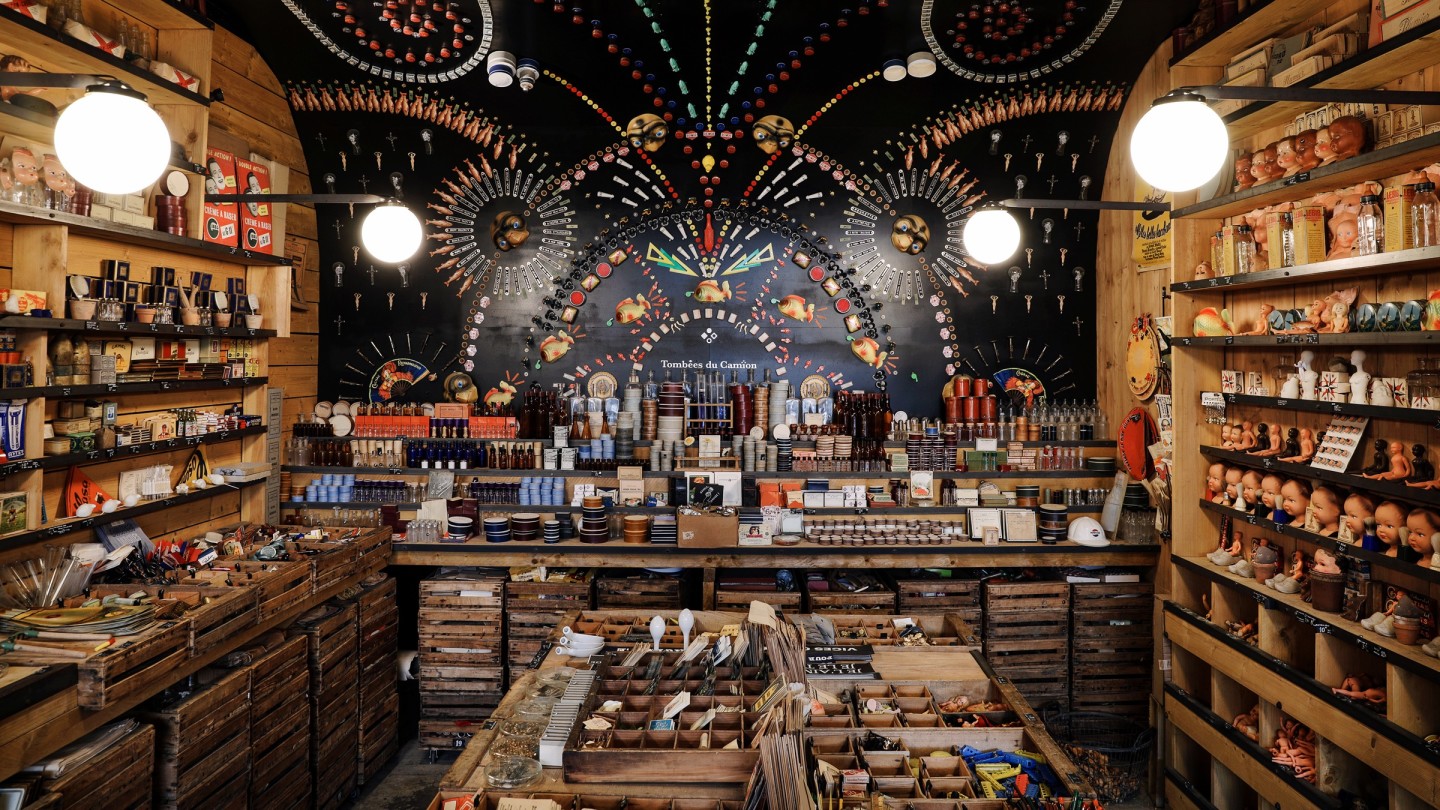
Roula Khalaf, Editor of the FT, selects her favourite stories in this weekly newsletter.
The Marché aux Puces de Saint-Ouen draws visitors from far and wide for its abundance of vintage and antique treasures. Wandering the network of covered markets and antique dealers that spans 17 acres on the northern fringes of Paris, you can find everything from 1950s Eames chairs and vintage silverware to Chanel costume jewellery and Nike knock-offs.
If you’re after trinkets with little monetary or practical value but oodles of charm, there’s one shop in particular that stands out. Down one of the market’s narrow, winding arteries, Tombées du Camion, which means “fallen off the lorry” (a tongue-in-cheek reference to the means by which some dealers acquire their goods), is a hoarder’s delight with a seemingly infinite inventory of unusual objets.
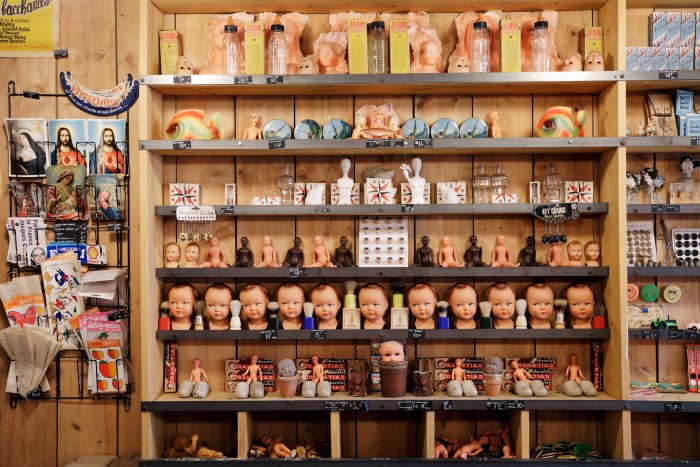
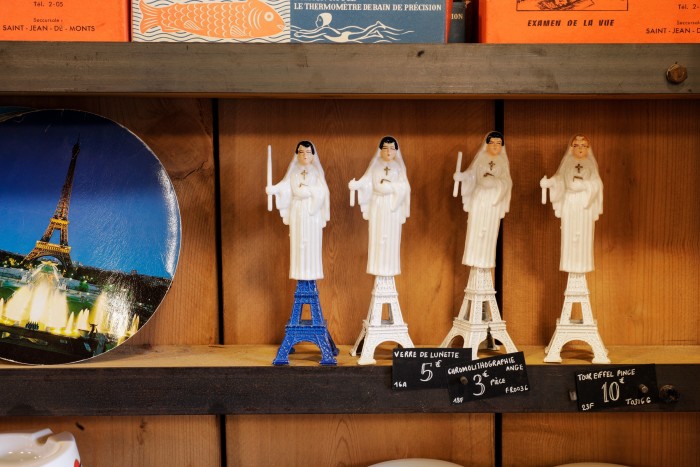
“I sell anything and everything,” says Charles Mas, the shop’s eccentric founder and curator. On any given day, you might find miniature plastic hairbrushes and baby bottles (€3), 20th-century speculums (€25), letterpress stamps (from €5), sewing scissors in the shape of the Eiffel Tower (€25), dolls’ heads (€18), vintage postcards (€4), alarm-clock hands from the ’70s (€3), spools of wireless wire (€15), and sealed glass flasks of Élixir Parégorique, a historic opium-based antidiarrheal tincture (€6) – all piled up in wooden crates or displayed on rough-hewn shelves designed and built by Mas himself. “I like the hidden meaning of objects. Sometimes I buy things that are not particularly interesting unless you start to look at the intention behind them.”
A former sculptor and second-hand dealer, Mas opened the shop in 2006 after becoming disenchanted with the antiques trade. “I liked old objects, but the way of trading and the speculation and competition didn’t really appeal to me,” he explains. “So I decided to do my business with objects that other people weren’t interested in so I wouldn’t have to compete – but also because I thought that it was aesthetically interesting to accumulate useless objects in large quantities.”
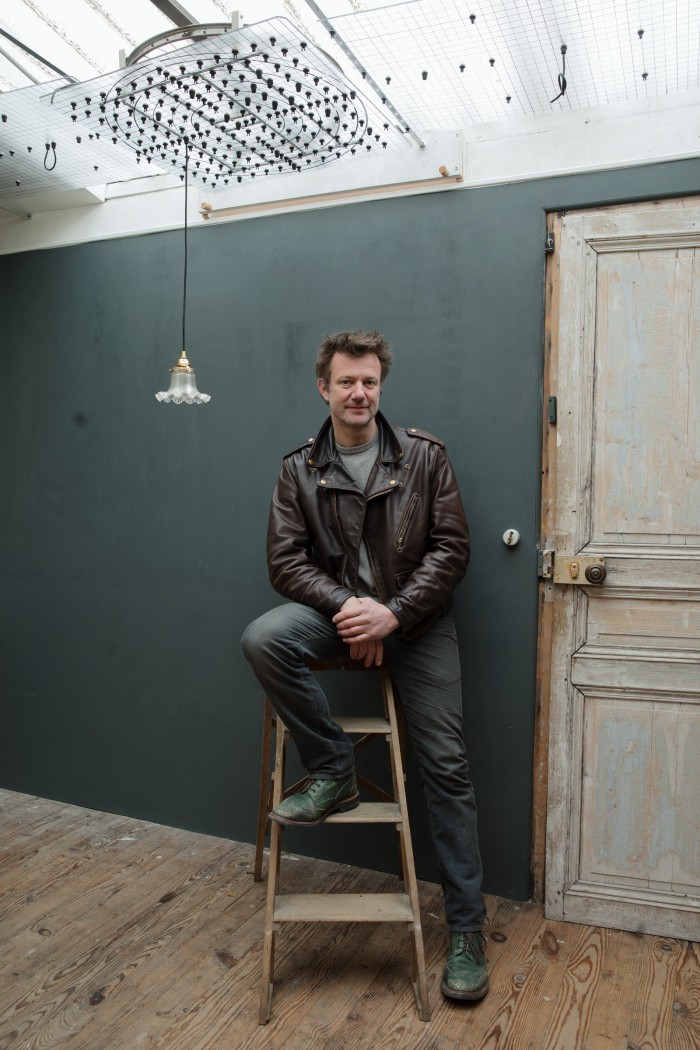
Rather than hunting at auctions, he sources his wares from flea markets or from merchants who scour toy warehouses and abandoned French factories in search of small, unused relics of the past – such as the dolls’ heads salvaged from the Bébé de Paris factory, which closed in the early 20th century. “It’s one of the craziest shops in the world, because the aim is not to trade,” Mas says of his store. “People buy things, of course; you have to pay the rent. But in reality, it’s a play area for me.”
Drawing inspiration from surrealism and dadaism, such as the grotesque dolls of German artist Hans Bellmer or Facteur Cheval’s palace built out of pebbles, Mas arranges the objects in kaleidoscopic patterns along the walls and ceiling. The effect is of an art installation or tiny museum. “These objects are stupid, but when you pair them with another object – for example, you put a doll’s eye next to a plastic carrot – then all of a sudden a poetry emerges,” says Mas.
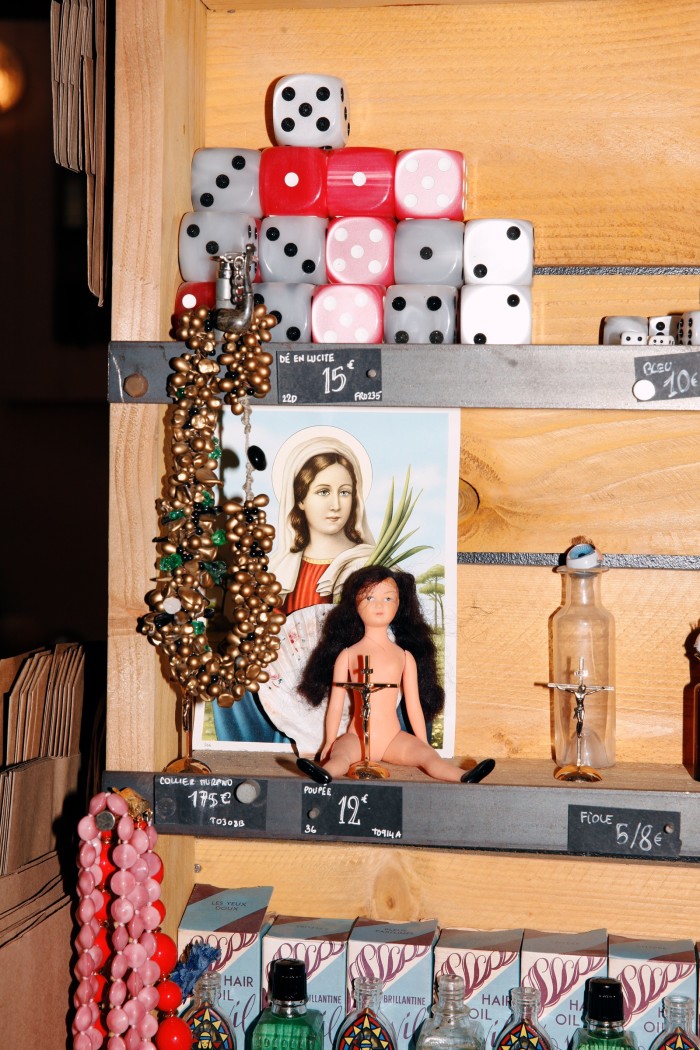
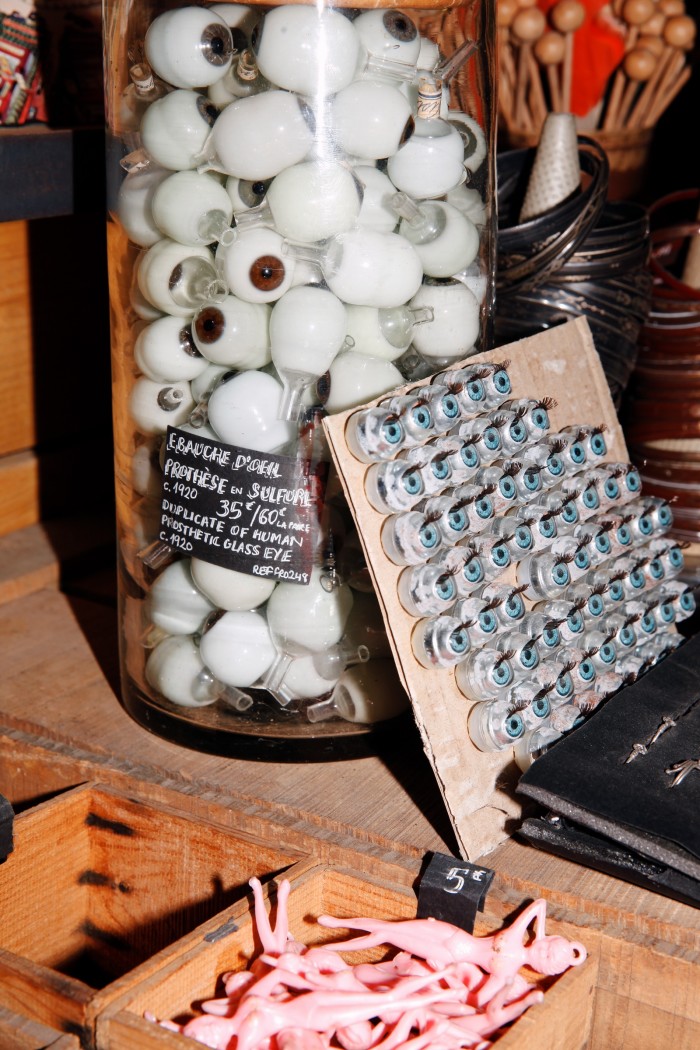
As for the shop’s customers, they are as eclectic as its stock: from set designers to young children on holiday, each is drawn in by the crates piled with stacks of beads, hair clips and Bakelite jewellery. “There are no real categories of customers – it’s people of all ages, from those looking for Proust’s madeleine to people like you and me,” says Mas. “Though I’d like to think that they are people with a sense of humour.”
For Mas’ older clientele, the objects – which are mostly made in France – are also a nostalgic window to their youth. “I see people in their 70s and 80s who discover something from their childhood that stirs an emotion in them,” he says. “It’s like time travel.”
Tombées du Camion, 99 Rue des Rosiers, 93400 Saint-Ouen-sur-Seine, France, tombeesducamion.com
Comments